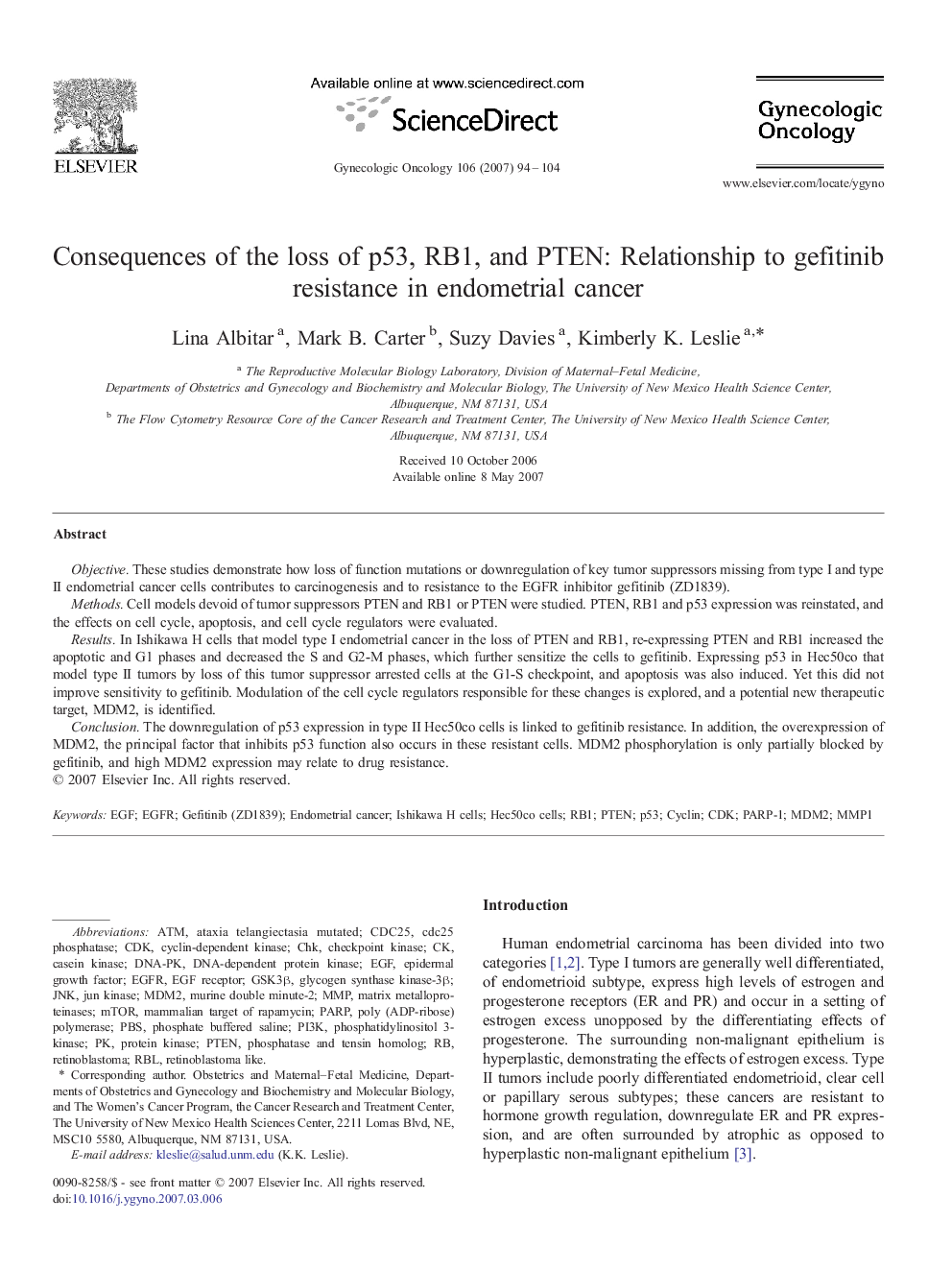| کد مقاله | کد نشریه | سال انتشار | مقاله انگلیسی | نسخه تمام متن |
|---|---|---|---|---|
| 3947575 | 1254459 | 2007 | 11 صفحه PDF | دانلود رایگان |

ObjectiveThese studies demonstrate how loss of function mutations or downregulation of key tumor suppressors missing from type I and type II endometrial cancer cells contributes to carcinogenesis and to resistance to the EGFR inhibitor gefitinib (ZD1839).MethodsCell models devoid of tumor suppressors PTEN and RB1 or PTEN were studied. PTEN, RB1 and p53 expression was reinstated, and the effects on cell cycle, apoptosis, and cell cycle regulators were evaluated.ResultsIn Ishikawa H cells that model type I endometrial cancer in the loss of PTEN and RB1, re-expressing PTEN and RB1 increased the apoptotic and G1 phases and decreased the S and G2-M phases, which further sensitize the cells to gefitinib. Expressing p53 in Hec50co that model type II tumors by loss of this tumor suppressor arrested cells at the G1-S checkpoint, and apoptosis was also induced. Yet this did not improve sensitivity to gefitinib. Modulation of the cell cycle regulators responsible for these changes is explored, and a potential new therapeutic target, MDM2, is identified.ConclusionThe downregulation of p53 expression in type II Hec50co cells is linked to gefitinib resistance. In addition, the overexpression of MDM2, the principal factor that inhibits p53 function also occurs in these resistant cells. MDM2 phosphorylation is only partially blocked by gefitinib, and high MDM2 expression may relate to drug resistance.
Journal: Gynecologic Oncology - Volume 106, Issue 1, July 2007, Pages 94–104